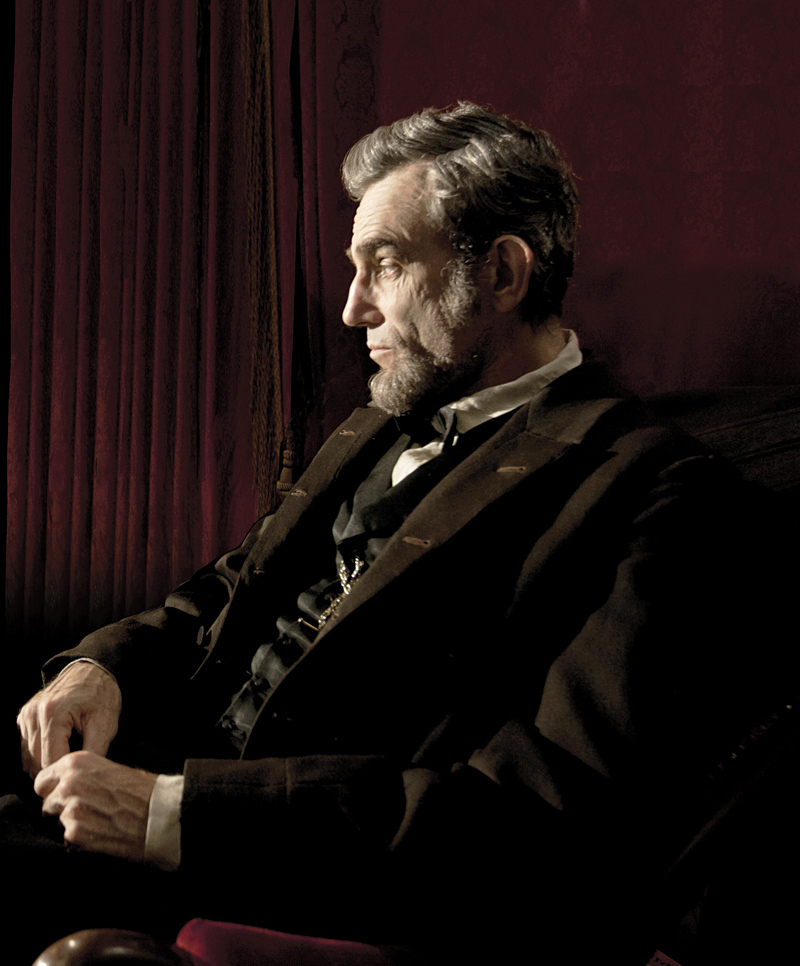Much has already been written about Daniel Day-Lewis’ interpretation of the 16th U.S. president in Steven Spielberg’s Lincoln, and specifically about the reedy Midwestern tenor he adopts, derived from the often-mocking historical documentation of Lincoln’s contemporaries. A sharp contrast to the stentorian elocution actors tend to adopt for the great emancipator, it’s the most superficial and immediately apparent facet of this somehow almost 4-D character made flesh by Day-Lewis: a vivid evocation of a man no living person ever knew, and what amounts to the best guess of arguably the best actor of his generation. So that’s one of the challenges Spielberg confronts: squaring the Georgia white marble of the Lincoln Memorial with the flesh-and-blood reality we can never really know—evoking the man without diminishing the leader. The director’s other challenges include relating the complications and subtleties of political maneuvering, and the inherent suckiness of the biopic form. Spielberg solves that by lensing the portrait through a single event: the fight to pass the 13th Amendment through the House of Representatives. The film is studied and often somber, but also hugely entertaining, a bitchily fun story of political gamesmanship, influence trading, patronage, cronyism, and outright bribery. This Lincoln is quietly ironic, an indulgent storyteller, a hugely charismatic leader. A politician by turns charmingly persuasive and iron-fisted. A melancholic who suffers deeply, forced to barricade his grief behind a facade of steadiness and disarming humor. A father who sprawls on the floor with his young son, and a husband whose wife’s madness is no match for his affection. Day-Lewis is just crazy good.
Lincoln: Daniel Day-Lewis Is Amazing
Daniel Day Lewis Is Amazing








